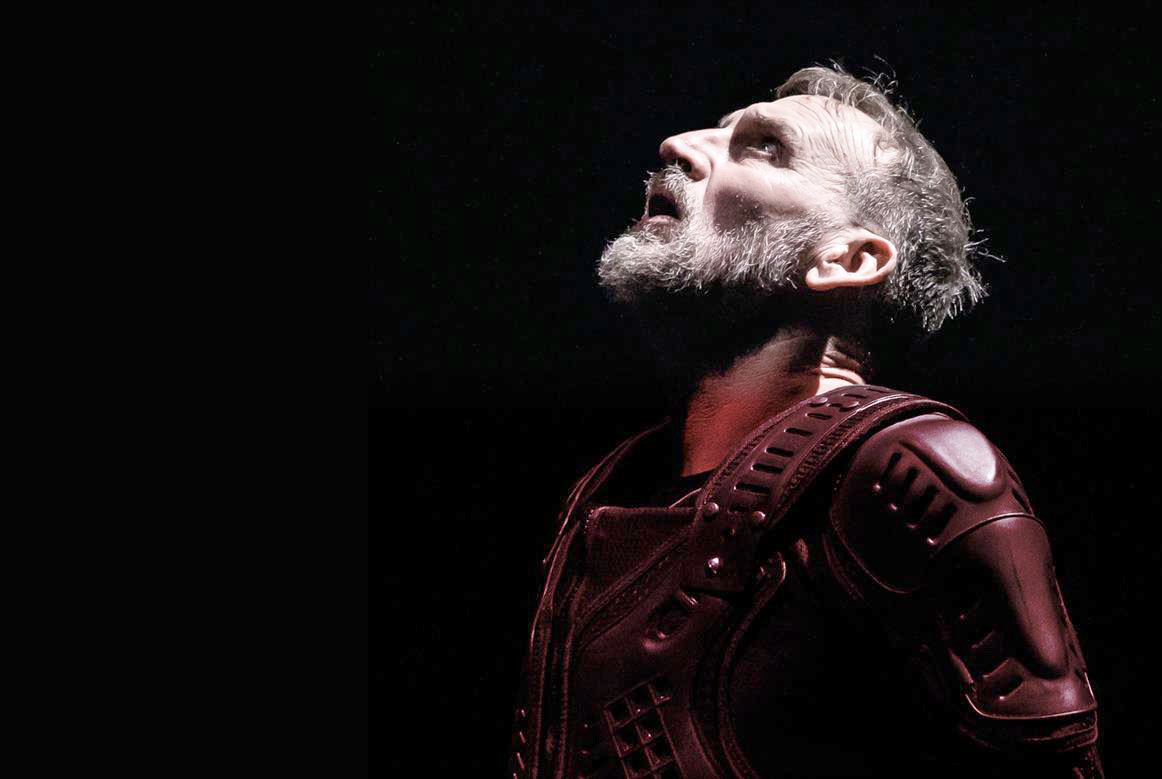
Stars made by television, are a rarity at Stratford. So how would Christopher Eccleston inhabit the stage as Macbeth? And what sort of production would director Polly Findlay build around him?
The odds on Eccleston seemed favourable. To watch him in TV dramas – from Our Friends in the North through to Come Home, is to be engulfed by the suppressed tension and conflicted emotion that radiate from his large frame. A quality that could well illuminate Shakespeare’s play, which is focused through Macbeth’s mind.
Sadly, in the renownedly difficult part of the Scottish king at least, that powerful theatre presence fails to materialise. Eccleston speaks conversationally, losing the full thrust of the lines and their flow of thought. Nevertheless, he catches the savage bravery and spirit of action that are his character’s hallmark.
Ordinarily our consciences draw us into sympathy with the murdering thane. In the honesty of our nightmares we can all imagine following an opportunistic impulse, and descending into ever more evil acts, until time’s lease of retribution closes around us.
Macbeth, rewarded with a new title as the hero of a battle, seizes the ultimate title by killing King Duncan as he sleeps, stirred on by his wife and the prophesies of three witches. Banquo, predicted to be the father of kings, is the next of many killed because they threaten the insecure monarch’s survival.
In this modern dress production, Macbeth’s dark imaginings are secondary to preventing the audience becoming totally swept away by the action. Actors occasionally await their cues in full view by an office water fountain, particularly the porter (Michael Hodgson). His written scene breaks the tension following the murder of King Duncan, as Ignoring pounding on the gates, he muses on human frailty like the gatekeeper of Hell. Perhaps that is who he is here, as ever present he takes small parts, comments cynically on the action, keeps a tally of the dead, and even points out Macbeth’s whereabouts to his ultimate avenger.
Much else is new in the speeding flow. There’s an initial chill of perverted innocence, as the witches are played by three ten year old girls, clutching dolls. And from the discovery of Malcolm’s murder, a centrally located digital clock moves backwards in time, reaching 0.00 at the moment of Macbeth’s death.
King Duncan, played as boisterous and jolly rather than saintly by David Action, is a wheelchair bound invalid. Raphael Sowole is a solid presence as Banquo and, with the look of an office bound manager, Edward Bennett, gives McDuff dignity and depth: aided by a seemingly endless pause before his question about the apparent murder of his wife and children is confirmed. A clumsy swordsman, in this production, he only succeeds in killing Macbeth, when the later ceases to fight.
Yet if Macbeth is denied his characteristically defiant end, and we are denied any new insights into him and ourselves, Niamh Cusack intrigues. Her Lady Macbeth is full of a nervous social energy and charming exuberance, which channelled into the dark pursuit of power becomes undeniable. ★★★☆☆ Derek Briggs 17th May 2018
Production photos by Richard Davenport
MACBETH continues at Stratford until 18th September.

